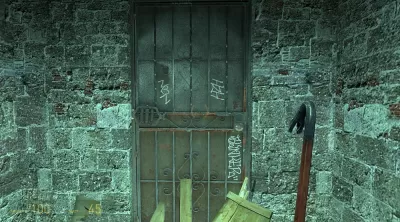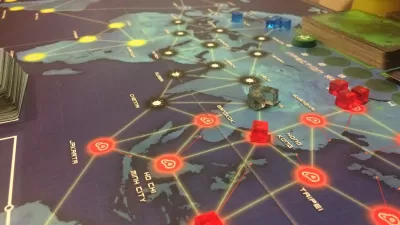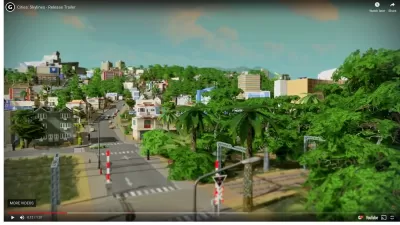The video game INFRA trades your typical Russian ultra-nationalists and Nazi zombies for a city on the verge of ruin. The protagonist, an engineer, is tasked with the seemingly mundane tasks that will bring the place back to life.

Many gamers will recall the pleasures of liberating City Seventeen from the rapacious Combine in Half Life 2. A new first-person video game called INFRA gives us something quite unique: a plot revolving entirely around fixing a broken city. Sitting in for Half Life protagonist Gordon Freeman is 'Mark,' "an engineer tasked with saving the infrastructure of a once-profitable, now badly degraded Baltic mining city."
In a break from hallowed gaming tradition, INFRA skips the zombies, custom weaponry, and waves of nameless, faceless bad guys. On the game's nonviolence John Metcalfe writes, "The action begins in, of all places, a boardroom discussion—a narrative decision the game seems to instantly regret, because you get a pop-up option to 'Skip meeting.'"
Bringing a decrepit city back to life sure can be fun, but there's a sobering lesson behind INFRA, especially in the wake of the Flint water crisis. "Oskari Samiola, who's 23 and lives in Finland, earlier told CityLab the inspiration for making this game was watching a 'documentary about the U.S.A.'s at-the-collapsing-point infrastructure' and 'generally after hearing news about spoiled tap water and seeing roads in poor condition.'"
FULL STORY: The 'Half-Life 2' of Infrastructure Video Games Is Out, And It's Weird

Maui's Vacation Rental Debate Turns Ugly
Verbal attacks, misinformation campaigns and fistfights plague a high-stakes debate to convert thousands of vacation rentals into long-term housing.

Planetizen Federal Action Tracker
A weekly monitor of how Trump’s orders and actions are impacting planners and planning in America.

In Urban Planning, AI Prompting Could be the New Design Thinking
Creativity has long been key to great urban design. What if we see AI as our new creative partner?

How Trump's HUD Budget Proposal Would Harm Homelessness Response
Experts say the change to the HUD budget would make it more difficult to identify people who are homeless and connect them with services, and to prevent homelessness.

The Vast Potential of the Right-of-Way
One writer argues that the space between two building faces is the most important element of the built environment.

Florida Seniors Face Rising Homelessness Risk
High housing costs are pushing more seniors, many of them on a fixed income, into homelessness.
Urban Design for Planners 1: Software Tools
This six-course series explores essential urban design concepts using open source software and equips planners with the tools they need to participate fully in the urban design process.
Planning for Universal Design
Learn the tools for implementing Universal Design in planning regulations.
Gallatin County Department of Planning & Community Development
Heyer Gruel & Associates PA
JM Goldson LLC
City of Camden Redevelopment Agency
City of Astoria
Transportation Research & Education Center (TREC) at Portland State University
Jefferson Parish Government
Camden Redevelopment Agency
City of Claremont




























